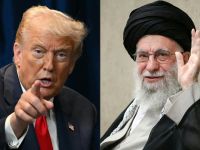No one comes out clean after we’ve learned all the Lance lessons...
Anyone who still claims Lance Armstrong didn’t dope his way to seven Tour de France titles is either playing dumb, plain dumb or Lance Armstrong.
That wasn’t an easy thing for us to write. As much as anyone, we wanted to believe in the terrific tale of a man beating cancer then jumping on a bike and defeating a drug-riddled peloton using just adrenaline and the occasional energy drink. However, in the back of our minds remained the quote of five-time Le Tour winner Jacques Anquetil: “You cannot win the Tour de France on just mineral water and baguettes.”
That and the fact the guys Armstrong raced against (Marco Pantani, Jan Ullrich, Alberto Contador, we could go on, and on…) have all been tainted as dodgy dopers, always indicated Armstrong wasn’t whiter than white. But, in spite of what’s taken place over the past week, we still cannot find it in ourselves to portray the American ace as the biggest baddie of them all, as others have.
What we do sign up to, is that it’s good he has been exposed as a doper: in sport, as in life, if you do wrong you should pay for your actions. However, the picture that has emerged from cycling over the past two decades isn’t of one man determined to cheat the system at any cost, rather a system rotten to the core with riders, team managers, journalists and administrators all complicit. It’s an episode and an era in which very few come out with any credit.
In this sense, it’s hard to see why his detractors have been so vitriolic towards Armstrong in trying to prove his guilt ahead of anybody else. One such ‘Lance hater’, the Irish journalist Paul Kimmage, even went so far as to call the American a ‘cancer’ when he wrote of his comeback in 2009: “For two years this sport has been in remission. And now the cancer’s back.”
Now it’s one thing to believe that Armstrong’s a drug cheat and to be intent on proving that. It’s another entirely to write that about a man that beat cancer and who has done so much for related charities. Such a statement also does scant service to the fact Le Tour was as drug-fuelled during Armstrong’s retirement (2006-08) as it was when he was winning it. The sport has never been in remission and to focus so much hatred and spit such bile in his direction does the sport and those who want to see it become clean a huge disservice.
The argument isn’t black and white. It’s not a case of “Lance is victim of a witch hunt” as much as “Armstrong is a bad man.” Such moral absolutism does neither side of the argument any favours, even taking into account the portrayal of him as a nasty narcissist.
Indeed, guys like Kimmage seem to miss the point about Armstrong. It requires remarkable levels of naivety to think he could conquer the dirtiest race in sport as the only clean participant, and obviously his reputation as a sportsman is now tarnished forever in the eyes of all bar the most blinkered of his fans. But the ‘Lance legend’ still isn’t completely shot down. We’d hazard a guess that what people found most inspiring about Armstrong, why they wore his ‘Livestrong’ yellow wristbands and why he became a hero to them is because he defied the odds and beat stage-three cancer when he was only given a 20-30 per cent chance of survival. To beat that and then go on to achieve the success he did remains, in our eyes, a great story - even though it now appears he cheated.
Just a quick glance at the men he beat to the yellow jersey from 1999-2005 reveals a list packed full of drug cheats. And to try and find the rightful winner, the man who was clean, in those years will likely be so tough as to be ultimately pointless. Indeed, it’s been said that if one was to try and find the true winner of those races then we might end up with a French shepherd who pushed his bike round in seven months.
In that light, are we still wrong to view his 1999 win, coming just 20 or so months after he was discharged from hospital, in a positive light? At the same time we are well aware the ‘they were all at it’ argument is hardly inspiring and not what sport is, or should be, about. Does it make his ‘crime’ more excusable? No, probably not. But it does put what he did into context and in doing so suggests the ‘Lance legacy’ of over $500 million raised for cancer charities, of increased awareness of cancer in men and in inspiring people of all ages to get off the sofa and on a bike, need not now simply be dismissed as egotistical nonsense.
Where does this leave cycling? Many like to think that with the reduced speeds of this year’s Le Tour peloton this episode draws a line under one of the most doped-up eras in the sport. However, it’s still a sport that allows those tainted by doping to return to the saddle without any hint of contrition and acknowledgment of guilt (Ivan Basso) and allows such riders (Alexander Vinokourov) to win Olympic golds.
That being the case it’s probably still naive in the extreme to think the sport is clean after the events of the past week.
And that tells us, as much as anything, the problems of drugs in cycling were never just about Lance Armstrong and everyone would do well to remember that.








